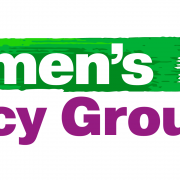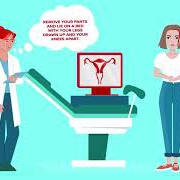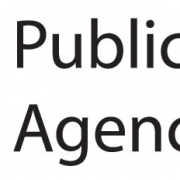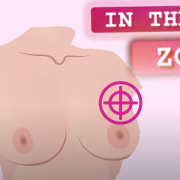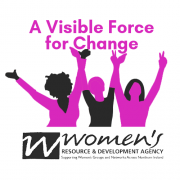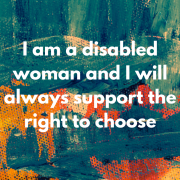This article is an excerpt from the Women’s Policy Group Feminist Recovery Plan Briefing on Disabled Women
The impact of the COVID-19 pandemic on disabled people has been drastic, as the Health Foundation highlighted following the release of ONS death figures for disabled people in England in February 2021.
“COVID-19 has had an unequal impact on disabled people who have been among the hardest hit in terms of deaths from the virus. Worryingly, today’s data confirms this trend, showing that 6 out of 10 people who have died with COVID-19 are disabled.
Today’s figures clearly show that current measures to protect disabled people are not enough and that there is an urgent need for more and better support. Disabled people are more likely to have one or more long-term health conditions, which means they are at greater risk of suffering severe symptoms if they get COVID-19.
However, as well as protecting disabled people from exposure to the virus, measures must account for the potential negative effects of lockdown and shielding. A significant number report that, due to lockdown, their health care needs are not being fully met or that they had treatment cancelled or delayed. Further action should include careful review of the support that is available to disabled people so they can access the care and essential services they need at home. It is also crucial that employment policy ensures that more disabled people get the support they need to work from home.
The high number of COVID-19 deaths among disabled people ultimately reflects wider failures in how the UK supports those who are vulnerable. Addressing this will require the government to address the major and long-standing inequalities that the pandemic has highlighted.”
People living in low-income areas, those with disabilities, older people, and people from minority ethnic backgrounds are all at increased risk of suffering serious illness and death as a result of COVID-19. The pandemic has harshly exposed pre-existing structural divisions and shown the consequences of failing to create a truly equal society.
The initial WPG Feminist Recovery Plan provided a comprehensive overview of Sisters of Frida Disabled Women’s Collective recommendations on supporting disabled women throughout COVID-19. This included emergency measures relating to access to food, health and medical services, including the voices of disabled mothers, access to support/paid and unpaid care and the right to independent living. One year on, widespread systemic discrimination against disabled women remains and we would like to again highlight some of the recommendations from Sisters of Frida from 2020:
- Ensure all disabled women’s rights are upheld and protected throughout the entirety and recovery of COVID-19
- Require all councils to release information on the specific supports they are delivering to disabled people during the easing of the lockdown
In addition, Sisters of Frida have since launched a 2021 research report on the impact of COVID-19 on disabled women and independent living9 . Some of the key findings include:
- The cost of living for Disabled women increased, however income decreased. Many Disabled women were not eligible to access the government’s £20 increase to Universal Credit. Discriminatory work practices and the government’s failure to implement fair employment regulations led to unemployment, reduced work hours and reduced pay
- Disabled women became more reliant on partners, family members and friends for financial support and care needs. Despite this, Disabled mothers were predominantly responsible for domestic duties, to the detriment of their impairments
- The sourcing of food, basic household products, medication (including menstrual hygiene products) was made inaccessible by supermarkets, the medical system and local authority services
- Disabled women’s social care needs were not met, and many Disabled women found themselves without any personal assistance. Information on their social care needs was inaccessible, unreliable, often wrong and many struggled to get basic support such as PPE
- Disabled women’s mental health deteriorated sharply since the pandemic. Those with care responsibilities felt under-supported. Many Disabled queer people and shielders felt abandoned and experienced extreme loneliness and depression
- Disabled women felt let down by the public’s attitudes to social distancing and mask wearing. This impacted on their access to the community and green spaces
- Disabled women’s health got worse as their healthcare needs were drastically deprioritised by medical professionals. Many have also been deprioritised in the vaccine prioritisation process
- Citizens Advice shows that in 2020, 1 in 4 Disabled people were facing redundancy10. Moreover, half of those who are clinically extremely vulnerable (shielders) were facing redundancy. Citizens Advice further reports that during the pandemic, there has been a 370% increase in their services being accessed by people seeking advice on fair redundancy processes
- The Trade Union Congress (TUC) have also raised concerns about Disabled workers’ inability to get support when in work through the Access to Work scheme
- Women of colour are more likely to be in insecure work than white employees12. Structural barriers such as lack of workplace adjustments and accessibility are an additional barrier for Disabled women of colour. Due to intersectional discrimination pertaining to race inequality, gender discrimination and disableism, Disabled women of colour are at a disadvantaged position at work
Understanding the intersectional impacts of social inequalities in our society requires an understanding of how various forms of discrimination can intersect and compound one another. Disabled women can face discrimination on two levels; on the basis of their gender and on the basis of their disability. Disabled women who are from ethnic minority backgrounds can also face additional discrimination on the basis of race, which can mean that their experience of gender inequality or disability discrimination is different from that of white disabled women. An understanding of these intersectional harms must be central to any policy-making on the rights of disabled people in Northern Ireland.
The COVID-19 pandemic has exacerbated pre-existing inequalities faced by disabled people and, in many cases, made it harder for them to fully and equally participate in society. Now more than ever, long-term, meaningful action by the NI Executive is required to adequately address the structural and systemic barriers faced by disabled people, and specifically disabled women, in Northern Ireland. A commitment to this must be embedded in all COVID-19 recovery planning. Action should also be taken to make progress on a Disability Strategy for Northern Ireland, as was promised in the New Decade New Approach Agreement.
This is an excerpt from the Women’s Policy Group Feminist Recovery Plan Briefing on Disabled Women


